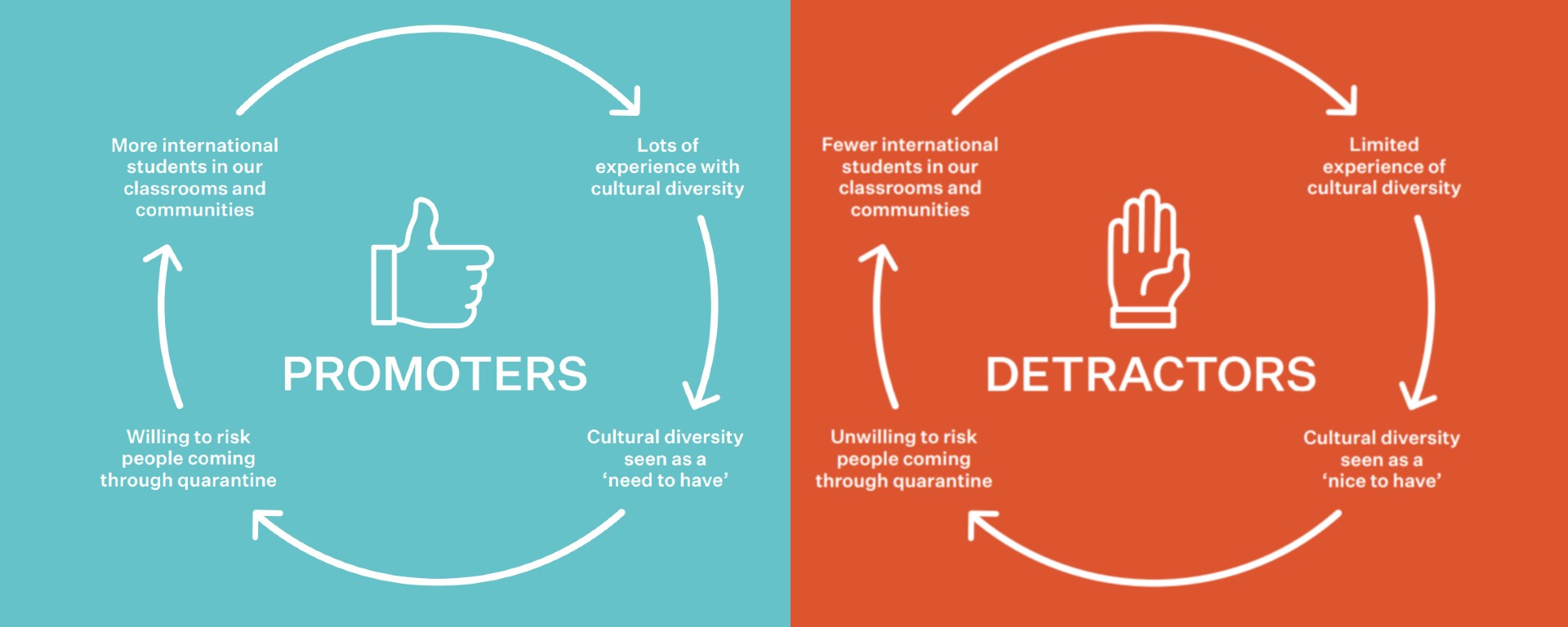13 April 2021 at 12:42 pm
What do Kiwis think about international education?
According to new research from ENZ, New Zealanders’ Perceptions of the International Education Sector, half of New Zealanders are poised to share their support for international education, but first they need to see a big increase in media and public discussion.

Our sector’s successful future requires the public and other stakeholders to know about, and value, international education.
ENZ Director Student Experience & Global Citizens, Sahinde Pala, says the research shows us international education is not front of mind for most New Zealanders.
“However, when the benefits of international education were explained to the research participants, most were really onboard. They were also surprised they hadn’t heard it being talked about publicly and in the media.”
Participants responded extremely positively to the fact international students spend in their community, including to help create jobs across many sectors.
Sahinde says the research showed it is vital that communications broaden the conversation. This means sharing stories about the rich full breadth of other international education benefits New Zealanders care about now including, global citizenship, cultural diversity, tourism, and the fact education is a way to share our innovative ways of thinking, learning and living to benefit the world.
Great fresh insights into how to communicate with Kiwis
Sahinde notes this research gives us the first understanding of the ‘profiles’ of New Zealanders regarding international education – promoters, passives and detractors – and how to share communications that will increase public support.
Encouragingly, half of the NZ population are in the promoter group, with a further 47% in the passive group, and only 3% in the detractor group.
“The greatest social licence gains can be made through the ‘promoter’ group which makes up half of Kiwis. These people either know about international education or they fit a profile of having experiences or attributes that mean they are interested in New Zealand’s place in the world and cultural connectivity. The really great news is promoters will talk to others about international education if they hear it being discussed, and in a way that is meaningful to them.
“This is the task for all of us across the international education system,” she says.
The research also shows that two-thirds of New Zealanders are supportive of students coming into the country in 2021. “This is helpful to understand as we want to ensure those who have stayed and those who come this year receive the manaakitanga Think New promises them,” Sahinde says.
Putting the research findings to work and next steps
Using the insights from this research, ENZ is developing a communications toolkit, including ‘right fit’ messaging, for those in the international education system to use in their own public and stakeholder communications. This is scheduled for release in May.
The toolkit will sit alongside this research, and ENZ’s new regular The Insight Story publication, which provides international education data and insight, as social licence tools to help increase awareness and support for international education.
ENZ is also increasing its own communications to help increase awareness of what international education is, where it is going under the Recovery Plan and NZIES and ultimately, how it benefits students, New Zealand and our global relationships.
ENZ will continue research to understand perceptions and support for international education, including to look at ways of getting real time insights into public sentiment and support.
Read all about it!
The report is now on IntelliLab.

